Frequently Asked Questions: Nursing Home Visitation Rights & COVID-19

FAQ • Updated April 2021
Eric Carlson and Natalie Kean, Justice in Aging
This FAQ is a follow up to NCLER’s training, LTSS Policy Changes in Response to COVID-19. The webcast recording and slides have more information.
What rights do nursing facility residents have to receive visitors?
In general, under federal law, nursing facility residents have the right to accept a visit at any time, day or night. Residents also have the right to speak privately with long-term care ombudsman program representatives.
During the COVID-19 pandemic, however, these visitation rights have been limited. In March 2021, the Centers for Medicare and Medicaid Services (CMS) adjusted the visitation rules to account for reduced COVID-19 rates. Visitation remains limited, but the limits are less restrictive than the rules that applied through most of 2020 and early 2021.Under the current CMS guidance, a resident generally has a right to accept visitors in the facility, with the added suggestion from CMS that outdoor visitation is safer and thus preferred, when weather permits. Because of the continued risk presented by COVID-19, however, facilities retain some authority to limit indoor visitation. CMS lists three specific situations when a facility can restrict indoor visits: (1) an unvaccinated resident when the county’s COVID-19 positivity rate is greater than 10%, and less than 70% of residents in the facility are fully vaccinated; (2) a resident with a confirmed COVID-19 infection (regardless of vaccination status), and (3) a resident in quarantine (also regardless of vaccination status). Also, a facility can limit visitation if a case of COVID-19 has been identified among staff or residents. If COVID-19 testing reveals no other cases in the facility (or in a particular area of the facility), visitation can be resumed. But if other cases are found, visitation should be suspended until testing again shows no cases.
Under the CMS guidance, residents and visitors must continue to follow infection prevention procedures, including physical distancing, hand washing, and use of masks. Nonetheless, if a resident is fully vaccinated, the resident can choose to have close contact (including hugs or other touch) with a visitor while wearing a well-fitting mask. CMS’s fact sheet provides additional information.
Does a resident have any options if visitation in the facility is not allowed, but the resident has a particularly important need for visits?
Yes. Throughout the pandemic, visits have been allowed in “compassionate care” situations. The current guidance states that compassionate care visits—based on an individual resident’s specific need for visitation—should be allowed at all times, regardless of residents’ vaccination status, an outbreak in the facility, or the county’s positivity rate.
“Compassionate care” should be interpreted broadly: CMS has said that “compassionate care” is not limited to a specific list of situations. That being said, CMS also has given some examples: these include a resident at the end of life, a newly-admitted resident who is struggling with the new setting, a resident grieving after a death, a resident who is missing the cueing and assistance that previously had been provided by family or
friends, and a resident who is experiencing emotional distress due to being isolated from family and friends.National Center on Law & Elder
Note, however, the facility will make the initial decision on what will be considered “compassionate care.” Residents and their families and friends should be prepared to advocate for the right to have compassionate care visits. The advocacy should be first directed to the facility and, if unsuccessful, then to the state survey agency.
Can a facility require that a visitor be tested for COVID-19 or vaccinated?
No. CMS encourages testing and vaccination, but “visitors should not be required to be tested or vaccinated (or show proof of such) as a condition of visitation.”
Can a facility limit visits to a certain amount of time or to a particular number of visitors at one time?
Yes. CMS has authorized facilities to set such limitations if necessary to maintain infection prevention efforts.
Should residents accept visitors in their room if the resident has a roommate?
In general, no. If possible, the resident should meet with visitors in some other room in the facility or outdoors (weather permitting).
What can you do if a facility is improperly restricting visitation?
To reiterate, advocacy is crucial. Assert the resident’s right to visitation (under the federal regulation, 42 C.F.R. section 483.10(f)) and file a complaint as necessary with the state survey agency. Remember, even if the facility has a right to limit visits, the limitations must be reasonable.
Do nursing facility residents receiving short-term rehabilitation services have the same visitation rights?
Yes. Residents have the same rights regardless of their length of stay, and regardless of whether expenses are covered by Medicare, Medicaid, private payment, or another source.
Does the CMS guidance also apply to residents of assisted living facilities and group homes?
No. These federal rights and restrictions only apply to nursing facilities certified to receive Medicare and/or Medicaid payments. Rules for assisted living, group homes, and many other congregate settings are generally set by states rather than the federal government.
Can residents leave a nursing facility to visit family or friends?
Yes. A different federal agency, the Centers for Disease Control and Prevention (CDC), has issued guidance relating to residents leaving the facility. As long as the resident either is fully vaccinated, or returns to the facility within 24 hours and has had no close contact with someone with COVID-19, the resident does not need to be in quarantine upon return. The CDC states that quarantine may be appropriate in some limited
circumstances—see the guidance for more details.
Communication is vital. Residents and their family/friends should talk with the nursing facility staff ahead of leaving to ensure that all parties avoid surprises

